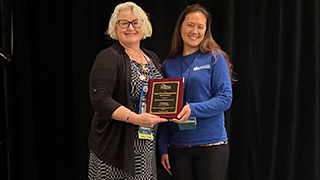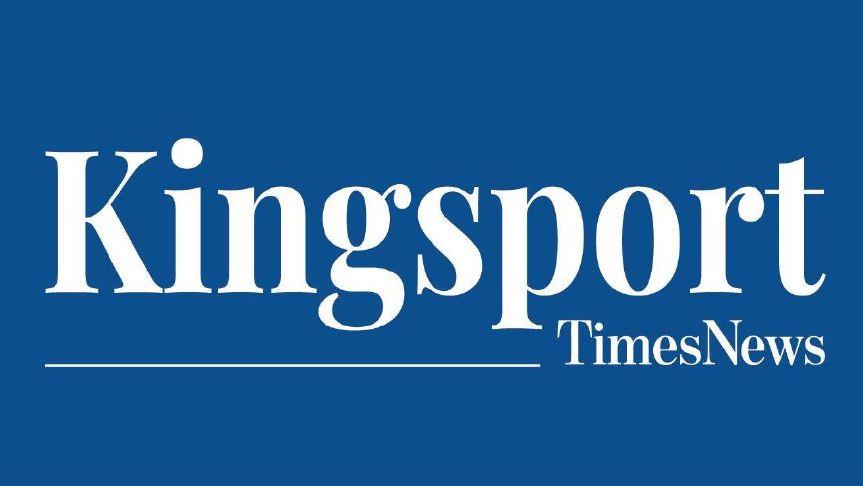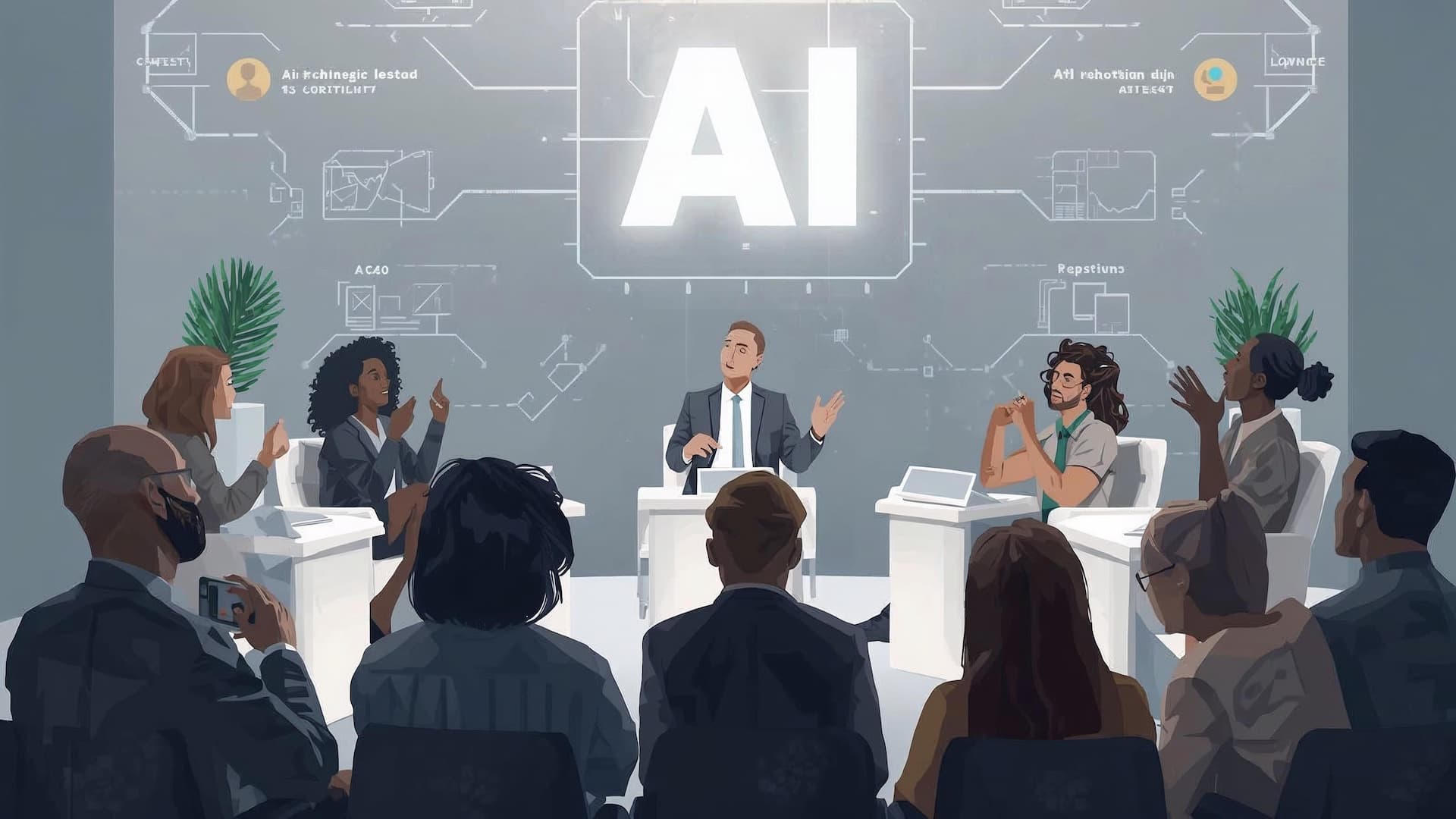Seton Hall’s Johanna Pan-Carr Honored With Prestigious NAFSA Distinguished Service Award – Seton Hall University

Report on the Recognition of Shao-Chen Pan-Carr and Contributions to Sustainable Development Goals
Introduction
Shao-Chen “Johanna” Pan-Carr, the Director of International Student and Scholar Services at Seton Hall University, has been honored with the James O’Driscoll Distinguished Service Award by NAFSA: Association of International Educators. This recognition highlights significant contributions to international education, a field intrinsically linked to the United Nations Sustainable Development Goals (SDGs), particularly those concerning education, equality, and global partnerships.
Alignment with Sustainable Development Goal 4: Quality Education
Pan-Carr’s career demonstrates a profound commitment to ensuring inclusive and equitable quality education and promoting lifelong learning opportunities for all (SDG 4). Her key contributions include:
- Over 12 years of leadership in international education, directly supporting the academic and personal development of more than 25,000 international students at institutions including Seton Hall University, NYU Shanghai, Fordham University, and New York University.
- Strengthening global engagement and support frameworks for international students and scholars, thereby enhancing access to quality higher education for a diverse global population.
- Serving as an active member of NAFSA’s Trainer Corps, where she has led professional development workshops. This work builds the capacity of other educators, multiplying the impact on quality education delivery.
Fostering Global Partnerships and Reducing Inequalities (SDG 17 & SDG 10)
The advancement of international education relies on robust global partnerships (SDG 17) and actively works to reduce inequalities within and among countries (SDG 10). Pan-Carr’s service exemplifies these principles through several actions:
- Serving on the NAFSA Region X Chair Stream from 2019 to 2021, she guided the regional community through the challenges of the COVID-19 pandemic, maintaining strong collaborative networks when global mobility was restricted.
- Championing innovative virtual programming and resource sharing, which sustained and strengthened partnerships for knowledge exchange and professional support.
- Mentoring emerging professionals in the field, which contributes to building a skilled and diverse workforce dedicated to reducing educational inequalities.
- Ensuring that international students and scholars at Seton Hall feel supported and empowered, which directly addresses the goal of promoting social inclusion and reducing inequalities in access to opportunity.
Contribution to Inclusive Societies (SDG 16)
International education is a key driver for fostering peaceful and inclusive societies (SDG 16) by promoting intercultural understanding and global citizenship. Pan-Carr’s work supports this goal by:
- Advancing Seton Hall University’s strategic goals for internationalization, which fosters an environment of inclusion and cross-cultural dialogue.
- Embodying a compassionate and service-oriented leadership style, which is foundational to building effective and inclusive institutions.
- Enhancing the university’s capacity to welcome and integrate the international community, thereby strengthening the institution’s role in promoting a peaceful and inclusive society.
Summary of Recognition
Pan-Carr’s sustained commitment to the global education mission is evidenced by her professional accolades, which underscore her long-term impact on advancing the SDGs.
- James O’Driscoll Distinguished Service Award: Acknowledges sustained and selfless service and exceptional contributions to international education.
- NAFSA Rising Star Young Leader Award (2016): An early recognition of her leadership potential and dedication to the field.
Analysis of Sustainable Development Goals in the Article
1. Which SDGs are addressed or connected to the issues highlighted in the article?
The article primarily addresses issues related to two Sustainable Development Goals (SDGs):
- SDG 4: Quality Education: The entire article revolves around the field of international education, focusing on the support and services provided to international students and scholars at the university level. It highlights efforts to enhance their educational experience, which is central to ensuring inclusive and equitable quality education.
- SDG 17: Partnerships for the Goals: The article emphasizes the importance of collaboration and professional networks in advancing international education. It details the role of NAFSA: Association of International Educators as a key partner and highlights the leadership and service within this organization to strengthen the community, share resources, and guide professionals, especially during challenges like the COVID-19 pandemic.
2. What specific targets under those SDGs can be identified based on the article’s content?
Based on the activities and achievements described, the following specific targets can be identified:
-
Under SDG 4: Quality Education
- Target 4.3: By 2030, ensure equal access for all women and men to affordable and quality technical, vocational and tertiary education, including university.
- Explanation: The work of Johanna Pan-Carr, as described in the article, directly supports this target by facilitating the access and success of international students in tertiary education. Her role in supporting “more than 25,000 international students” at institutions like Seton Hall University, NYU Shanghai, and Fordham University is a direct contribution to making quality university education accessible to a global population.
- Target 4.7: By 2030, ensure that all learners acquire the knowledge and skills needed to promote sustainable development, including… global citizenship and appreciation of cultural diversity…
- Explanation: International education inherently promotes global citizenship and cultural diversity. The article states that Pan-Carr’s work has “strengthened the University’s global engagement efforts” and that “Global engagement is central to Seton Hall’s mission.” This focus on internationalization and supporting a diverse “international student community” helps learners acquire a global perspective.
- Target 4.b: By 2020, substantially expand globally the number of scholarships available to developing countries… for enrolment in higher education…
- Explanation: While not mentioning scholarships directly, the article discusses the essential support infrastructure for international students and scholars. Pan-Carr’s work in “International Student and Scholar Services” and her leadership in providing F-1 visa training are critical for students, including those on scholarships, to study abroad. Her efforts help “advance opportunities for students and scholars from around the world,” which is the ultimate goal of this target.
- Target 4.3: By 2030, ensure equal access for all women and men to affordable and quality technical, vocational and tertiary education, including university.
-
Under SDG 17: Partnerships for the Goals
- Target 17.16: Enhance the global partnership for sustainable development, complemented by multi-stakeholder partnerships that mobilize and share knowledge, expertise…
- Explanation: NAFSA is a multi-stakeholder partnership of international educators. Pan-Carr’s service to NAFSA, including her role as a lead trainer for workshops and a mentor to “numerous emerging professionals,” exemplifies the mobilization and sharing of knowledge and expertise to strengthen the field of international education.
- Target 17.17: Encourage and promote effective public, public-private and civil society partnerships…
- Explanation: The collaboration between universities (like Seton Hall) and a professional civil society organization (NAFSA) is a partnership aimed at advancing international education. The article highlights how Pan-Carr’s leadership within NAFSA “maintained strong connections and collaboration through innovative virtual programming, professional development and resource sharing,” demonstrating an effective partnership in action.
- Target 17.16: Enhance the global partnership for sustainable development, complemented by multi-stakeholder partnerships that mobilize and share knowledge, expertise…
3. Are there any indicators mentioned or implied in the article that can be used to measure progress towards the identified targets?
The article does not mention official SDG indicators, but it provides qualitative and quantitative information that can serve as proxy indicators for measuring progress:
- For SDG 4 (Quality Education):
- Number of international students supported: The article explicitly states that Pan-Carr “supported more than 25,000 international students.” This figure serves as a direct indicator of the scale of participation by international students in tertiary education (relevant to Target 4.3).
- Development of institutional strategies for internationalization: The mention of advancing “Seton Hall’s strategic goals for internationalization” and strengthening “global engagement efforts” are qualitative indicators of an institution’s commitment to promoting global citizenship (relevant to Target 4.7).
- Provision of professional training and mentorship: Pan-Carr’s role as a “lead trainer for multiple F-1 visa workshops” and having “mentored numerous emerging professionals” indicates capacity-building efforts within the educational sector to support student mobility (relevant to Target 4.b).
- For SDG 17 (Partnerships for the Goals):
- Engagement in professional associations: Pan-Carr’s “long-standing service to NAFSA,” including serving on the “Region X Chair Stream from 2019 to 2021,” is an indicator of active participation in multi-stakeholder partnerships (relevant to Target 17.16).
- Implementation of collaborative programs: The creation of “innovative virtual programming, professional development and resource sharing” during the pandemic is a concrete indicator of partnership activities designed to share knowledge and maintain collaboration (relevant to Target 17.17).
SDGs, Targets, and Indicators Summary
| SDGs | Targets | Indicators (as identified in the article) |
|---|---|---|
| SDG 4: Quality Education |
4.3: Ensure equal access to quality tertiary education.
4.7: Ensure all learners acquire knowledge and skills for sustainable development, including global citizenship and appreciation of cultural diversity. 4.b: Expand higher education scholarships and opportunities for students from developing countries. |
– Number of international students supported (stated as “more than 25,000”). – Efforts to ensure international students feel “supported, welcomed and empowered to thrive.” – Strengthening of a university’s “global engagement efforts” and “strategic goals for internationalization.” – Advancing “opportunities for students and scholars from around the world.” |
| SDG 17: Partnerships for the Goals |
17.16: Enhance global partnerships that mobilize and share knowledge and expertise.
17.17: Encourage and promote effective public, public-private and civil society partnerships. |
– Active service and leadership in a professional association (NAFSA’s “Region X Chair Stream” and “Trainer Corps”). – Mentorship of “numerous emerging professionals in the field.” – Collaboration within the NAFSA community through “innovative virtual programming, professional development and resource sharing.” |
Source: shu.edu
What is Your Reaction?
 Like
0
Like
0
 Dislike
0
Dislike
0
 Love
0
Love
0
 Funny
0
Funny
0
 Angry
0
Angry
0
 Sad
0
Sad
0
 Wow
0
Wow
0












































































